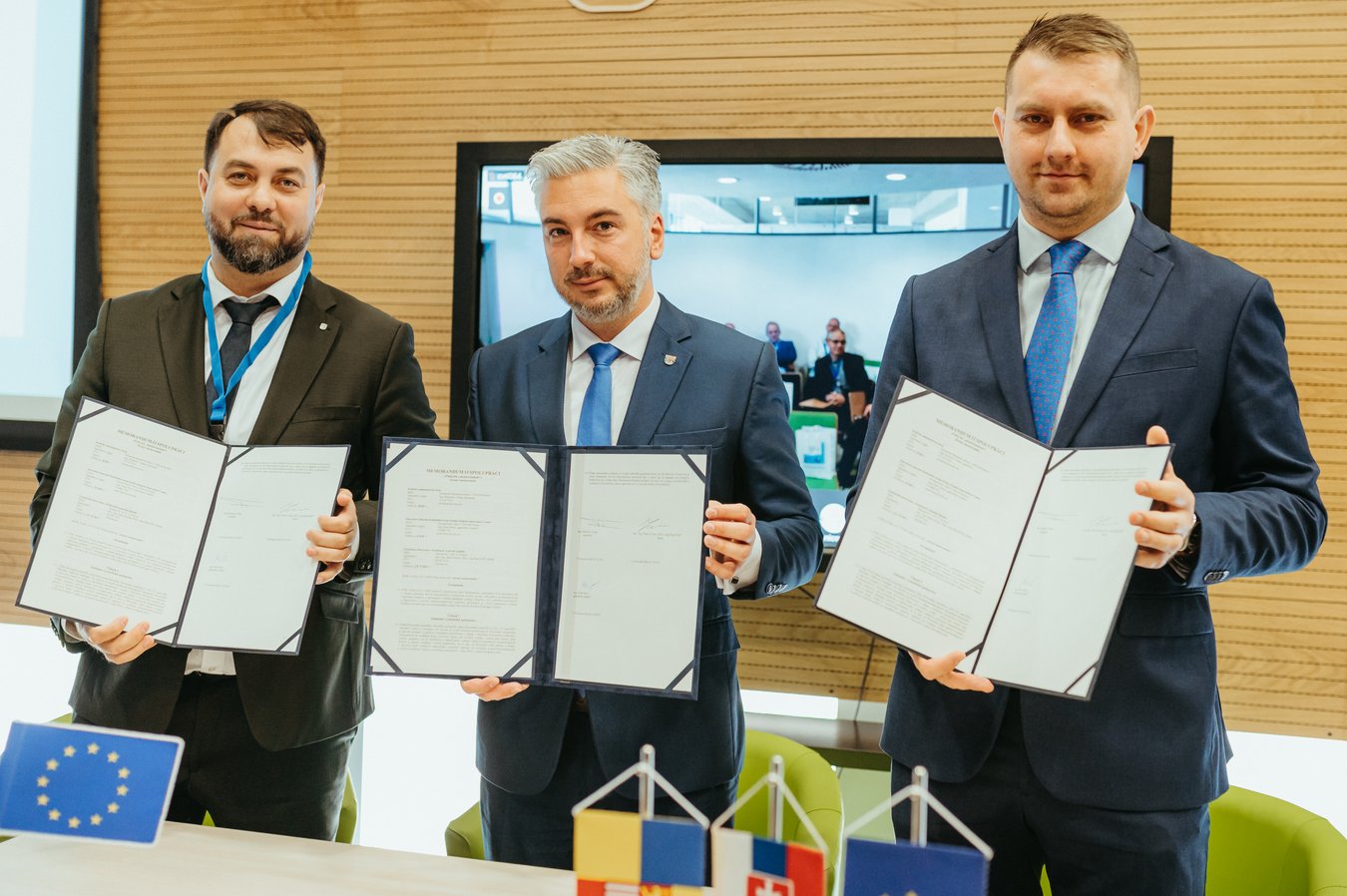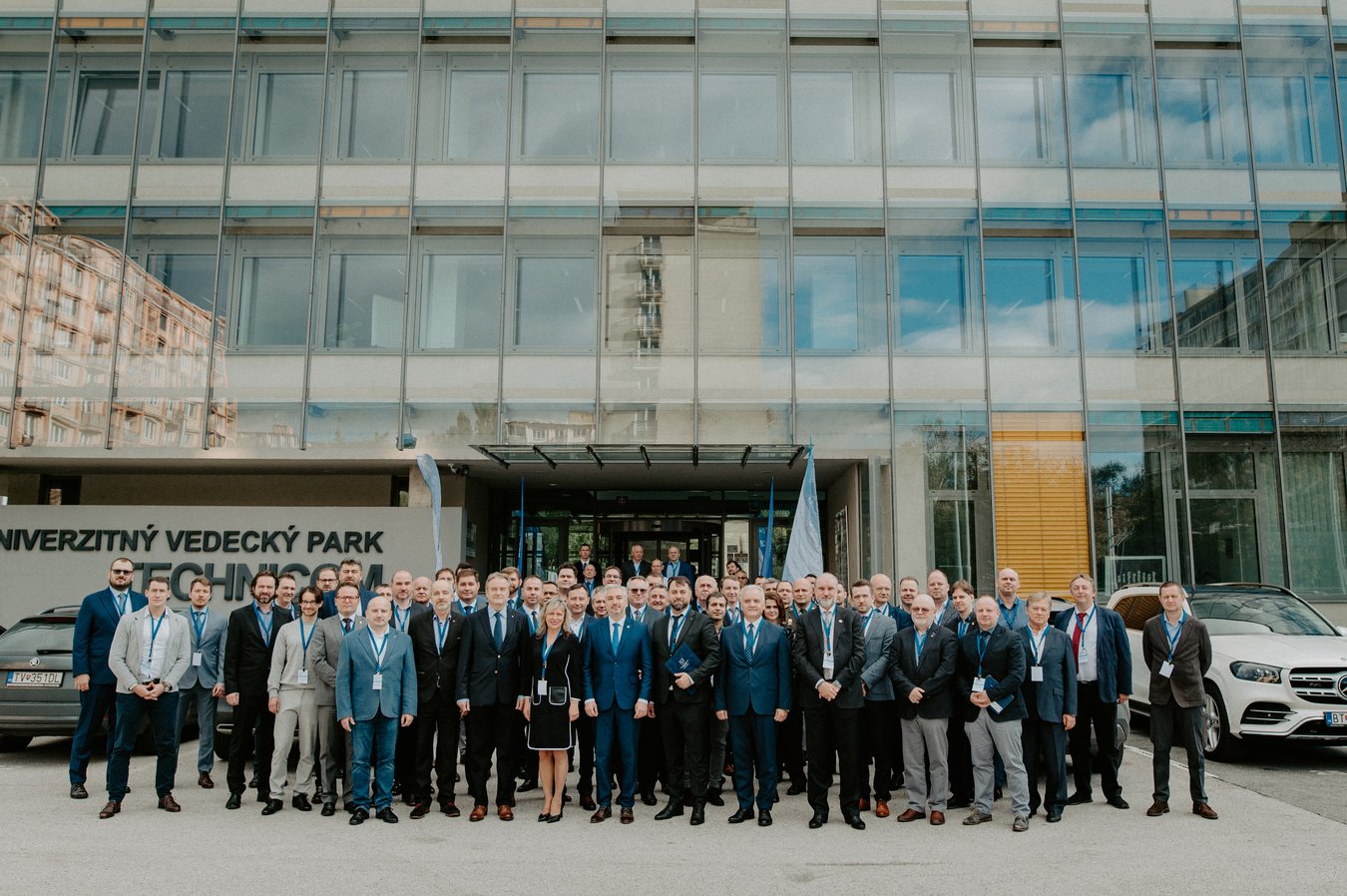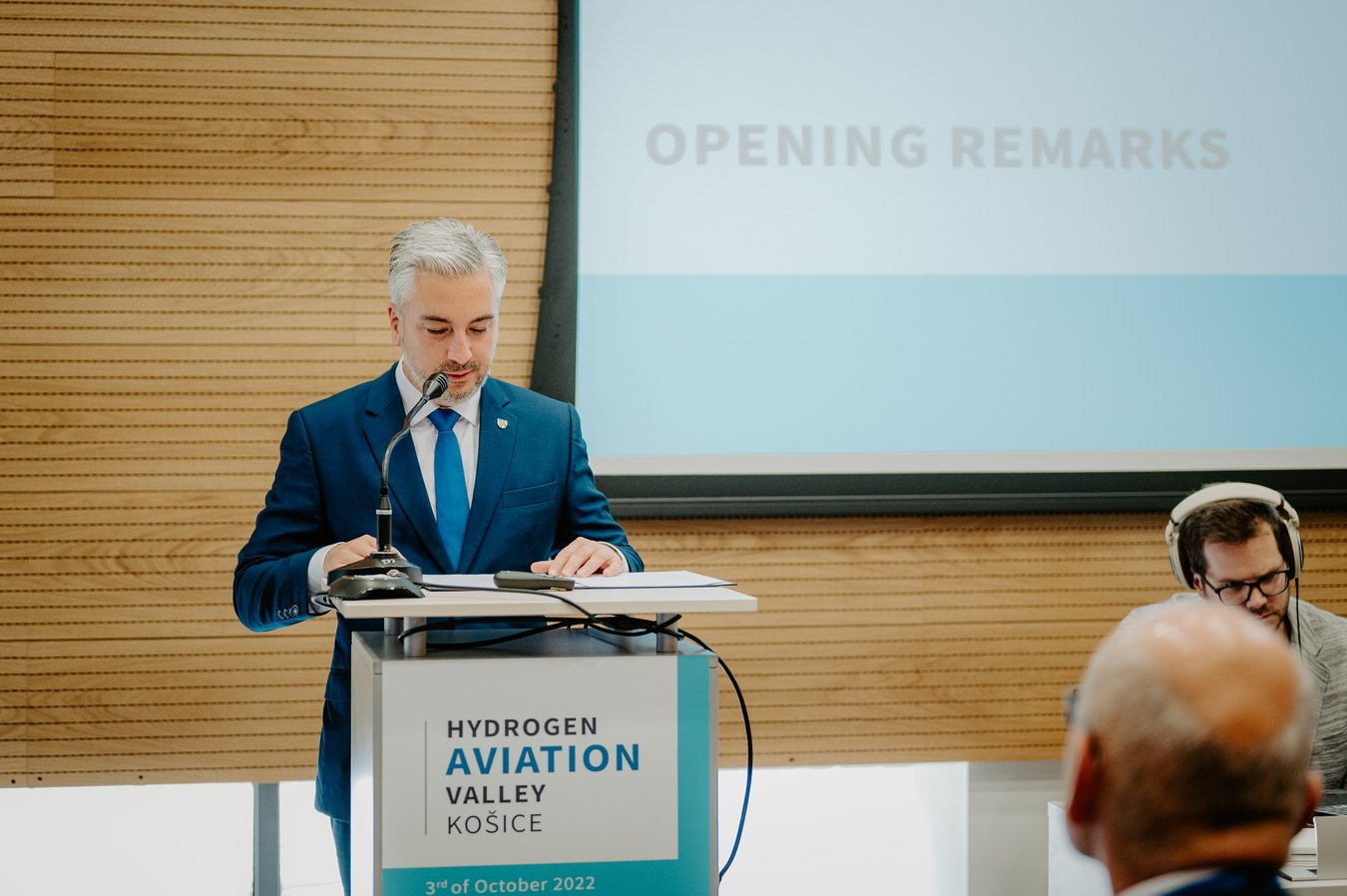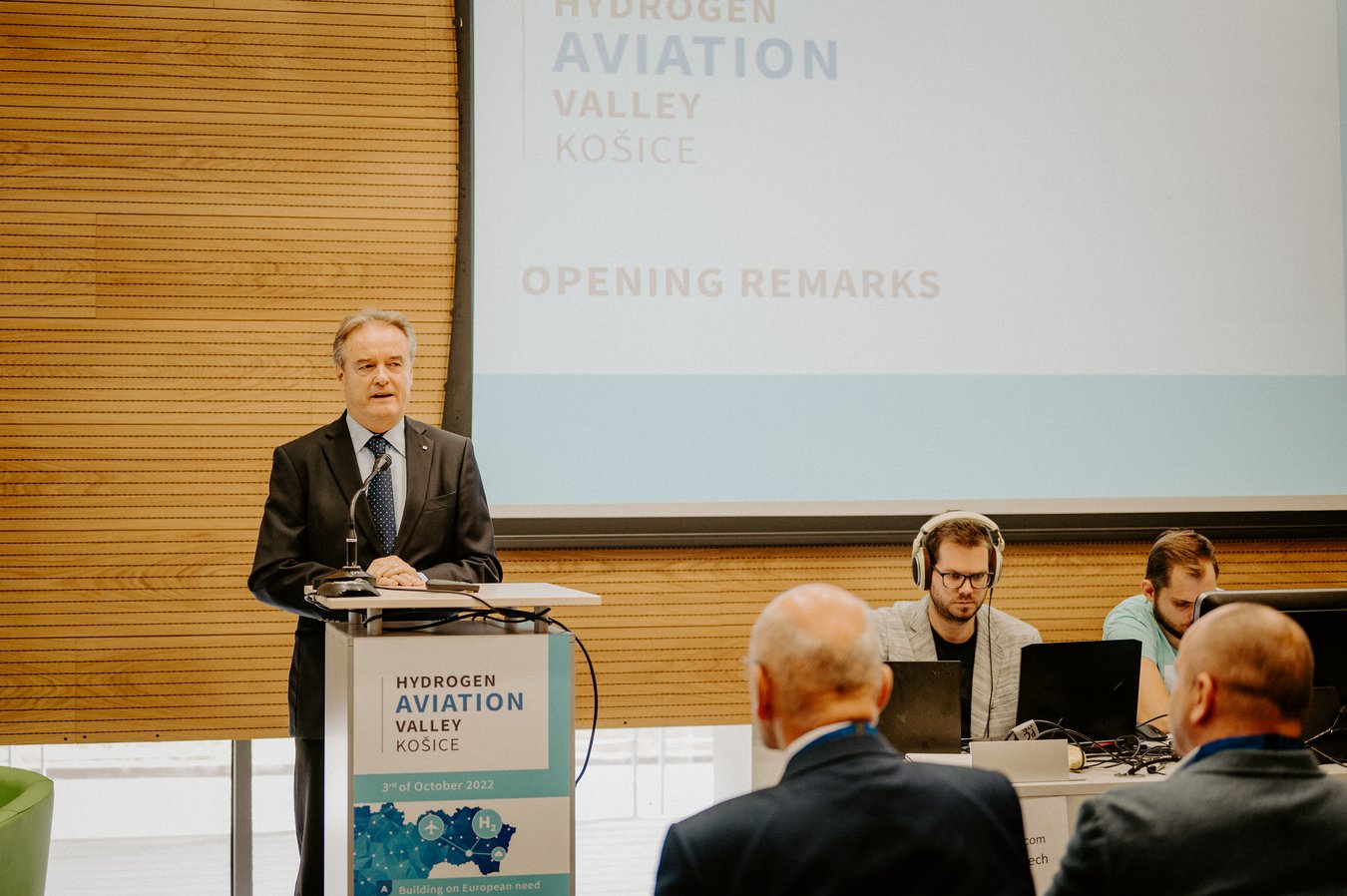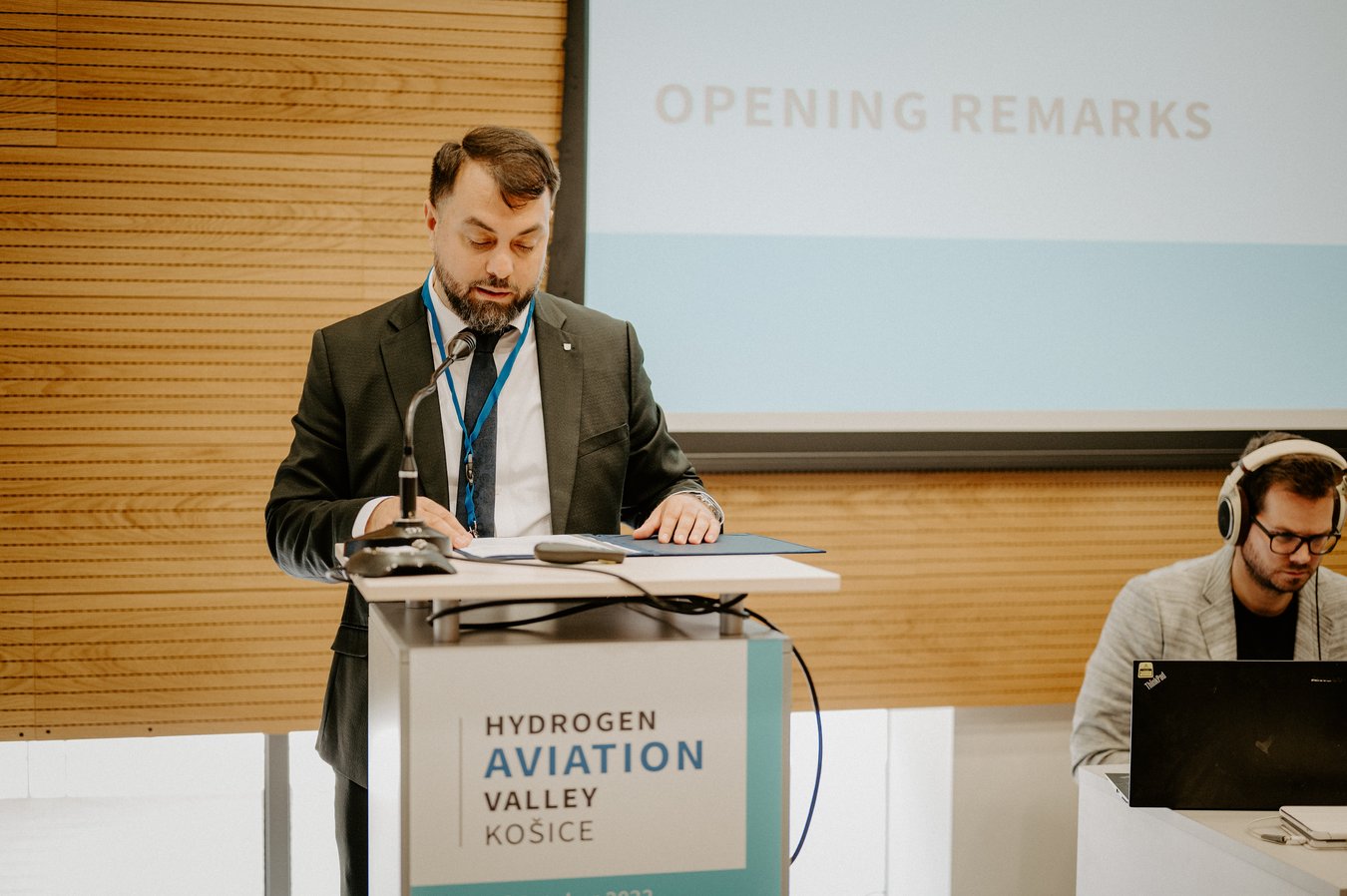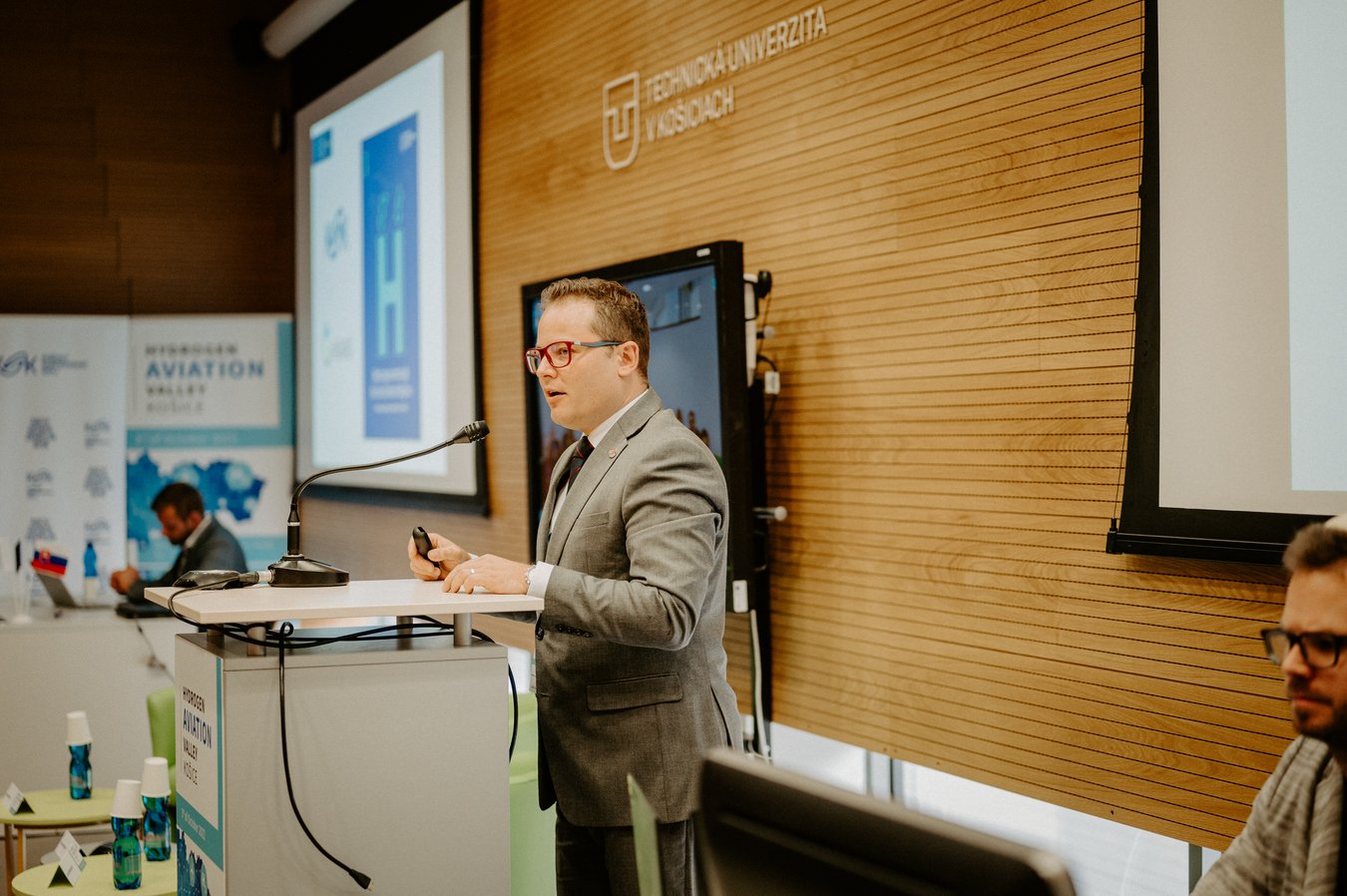Hydrogen Aviation Valley Košice initiative kicks off
News
During the European hydrogen week, the Technical University in Košice welcomed an initial working meeting aimed at presenting the vision of a regional hub of European importance Hydrogen Aviation Valley Košice.
The organizers of the event and the main partners of the initiative led by the Faculty of Aviation of the Technical University in Košice and the Košice self-governing region welcomed representatives of the scientific and research community, industry and regional government from more than six European countries to the TECHNICOM University Science Park. The main section was the presentation of the directors of Clean Aviation and Clean Hydrogen joint undertakings, who, in addition to describing the mission of the joint ventures, contributed recommendations for cooperation at the EU and regional level.
Hydrogen Aviation Valley Košice began its journey with a Memorandum of Cooperation, which was signed by the president of the Košice self-governing region, Rastislav Trnka, and the dean of the Aviation Faculty of the Technical University in Košice. Among the common areas of further cooperation beyond research and implementation of emission-free technologies, there was an agreement to support and seek ways to develop suburban air mobility, integration of unmanned flying systems and virtual reality in transport. In the words of President Trnka: "The climate crisis is raising alarm bells around the world. Here in the Košice region, up to one-third of the total amount of CO2 in Slovakia is produced. We are aware of this, which is why we were the first region in Slovakia to develop our own hydrogen strategy. We are working on launching of the operation of suburban buses that run on hydrogen within four years. We have also been supporting the development of the Košice Airport for a long time, as it is in the interests of the inhabitants of eastern Slovakia and beyond. Therefore, reducing the aviation industry's carbon footprint is not a local problem but a global one. That is why we are embarking on inter-regional and international cooperation." Together with an important partner at the regional self-government level, it is necessary to connect with professional capacities. "The Faculty of Aviation builds on a more than 60-year tradition of education and science in the field of aviation and space technology. Our goal is to participate in the European vision of Clean Aviation and offer expertise in, for example, the development of hybrid propulsion systems and control algorithms for turbine engines. At the same time, we want to continue in the field of digitization based on the research center of Air Traffic Management systems to expand research in the field of Unmanned Traffic Management and their mutual integration," said the dean of the Faculty of Aviation.
Furthermore, the conference has been supported by the Slovak Centre of Scientific and Technical Information (Centrum vedecko-technických informácií SR, CVTI). “The Aviation Hydrogen Valley has is a successful example of popularization of world class science and technology in Central Europe. Many of the scientific and technological contributions presented here have been invented and developed in Slovakia.” Said Daniela Stiel Podmajerska, Director of the Economics and Operations at Slovak Centre of Scientific and Technical Information (SCSTI).
After the successful launch in Košice, the partners of the initiative will focus on creating a professional working group and inviting other partners from the scientific and research as well as industrial sectors, the aim of which will be the preparation of a strategy leading to the creation of a unique regional hub.
